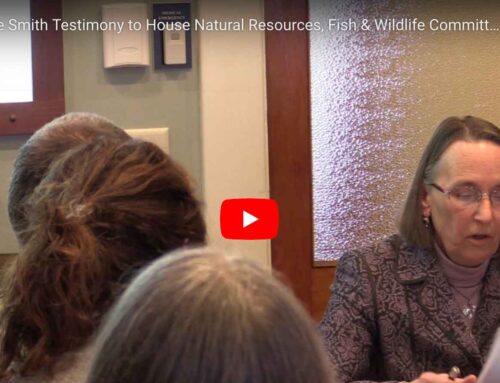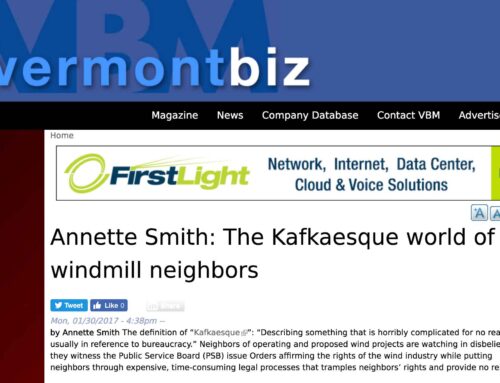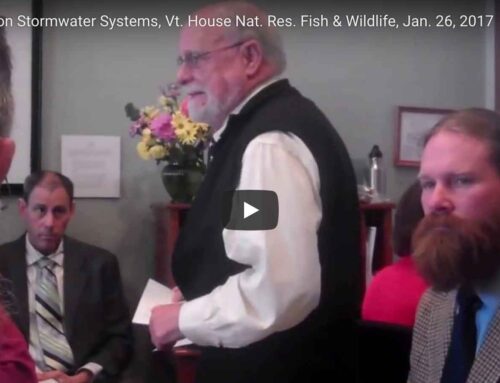http://vermontbiz.com/news/june/annette-smith-s230-proves-wind-turbine-noise-problem
Annette Smith: S.230 proves wind turbine noise is a problem
Tue, 06/07/2016 – 9:48am —
by Annette Smith In his May 25 Letter to the Editor to the Rutland Herald, Peter Yankowski asked House Speaker and Lieutenant Governor candidate Shap Smith to explain his relationship with renewable energy developer David Blittersdorf, his partner Ritchie Berger’s complaint filed against me with the Vermont Attorney General, and the apparent conflict of interest that has resulted in the refusal of the House under Speaker Smith’s leadership to pass meaningful renewable energy regulation.
I met with Speaker Smith in December 2015 and noted that for six years the towns, neighbors and public have been shut out of even having a conversation in the House about the need for standards and a better process for siting renewable energy. The sole purpose of the meeting was to ask how we were going to move forward in addressing the issues with renewable energy in the upcoming session. His response: “We’re not.”
I put the letters from an attorney at Dinse, Knapp & McAndrew, Shap Smith’s law firm, to towns attempting to get their correspondence with me in front of him, and noted that his firm was intimidating towns that were attempting to participate at the Public Service Board. His response was to push the letters back at me, noting that he saw them already when I posted them on vtdigger.org.
What I posted along with the letters was that the Speaker appeared to have a conflict of interest. Speaker Smith did not to address the conflict of interest issue in our meeting. Most importantly, he did not say that he had a firewall with his law firm, nor did he say that there was no concern over conflict of interest because he had a system in place to address it. Apparently there was no system or firewall.
As far as I can tell, as a managing partner and owner Shap Smith makes money on all his firm’s activities, so whatever claims he might make about not being involved in the details of what his partners are doing is ducking rather than responding to the question. Shap Smith’s firm represents David Blittersdorf and as long as Shap Smith has been Speaker of the House, he was in a position to advance his firm’s client’s interests or not. Under Shap Smith’s leadership the renewable industry interests were well served. The people affected by them got stonewalled, ignored, accused of being climate change deniers, anti-renewable, and got nothing. There was no balance. It was a one way street promoting the renewable industrialist’s agenda.
What I did not know at the time of that December meeting was that Ritchie Berger, Shap’s law firm partner, had already filed the complaint against me with the Attorney General’s office. I wonder if Shap Smith knew.
Fortunately the AG found the complaint was without merit and closed the investigation.
What we do know is that despite the Shumlin administration and key legislators’ efforts to assure that nothing about wind energy got into S.230, the “energy siting” bill, a section to address wind turbine noise pollution did get into the legislation. Language that would have required the PSB to do rule-making to establish sound standards passed the House unanimously. Representative Kesha Ram (also running for lieutenant governor), vice-chair of the House Natural Resources and Energy Committee, told the Senate Natural Resources and Energy committee that the wind noise piece was the main reason for the unanimous vote in the House. The Senate overwhelmingly supported S.230 with the wind turbine noise rulemaking requirement.
In the final days of the session, all of a sudden Representative Tony Klein, who Speaker Smith reappointed year after year to chair the key House Committee on Natural Resources and Energy, had problems with the wind turbine noise language in S230. By-passing his own attorney from legislative council, Representative Klein consulted via phone with the same AG William Griffin who chose to act on Ritchie Berger’s complaint against me. No written determination responsive to Representative Klein’s concerns was issued.
However, after Representative Klein met with the Shumlin administration, word was that if the wind language in the bill stayed, Governor Shumlin would veto the bill. On the last day of the session, the bill was changed to satisfy the Governor. Again it passed the House unanimously.
Now Governor Shumlin has vetoed S230. Speaker Smith says he will call the legislature back to address the veto, with the possibility of “fixing” the bill. The proposed “fix” is being promoted by VPIRG and contains yet more gifts to special interests, with nothing protective for present or future wind turbine neighbors. S230 directs the PSB to adopt temporary rules for wind turbine noise under §844(a) which says, “Where an agency believes that there exists an imminent peril to public health, safety, or welfare, it may adopt an emergency rule.” The bill does not and never did include anything to help the people living with the noise pollution from existing wind projects. Hundreds more Vermonters are threatened with a real emergency: excessive noise pollution that has already driven people from their homes, made people sick, caused some to sell at a loss, while others are unable to sell at all.
S230 does need fixing. The legislature should set a sound standard that is protective of public health and stop passing the buck to the PSB with its record of proven failure to protect public health. The legislature should require sound monitoring for existing and future projects. (What good is a speed limit without enforcement?) And the legislature should give town and regional plans substantial deference before the PSB. Those would be meaningful changes to S.230 that would make a real difference for Vermonters.
Instead, we are poised to see Speaker Shap Smith keep his promise that “we’re not” going to see any legislation addressing renewable energy siting standards passed in this session come true. David Blittersdorf will be happy.






